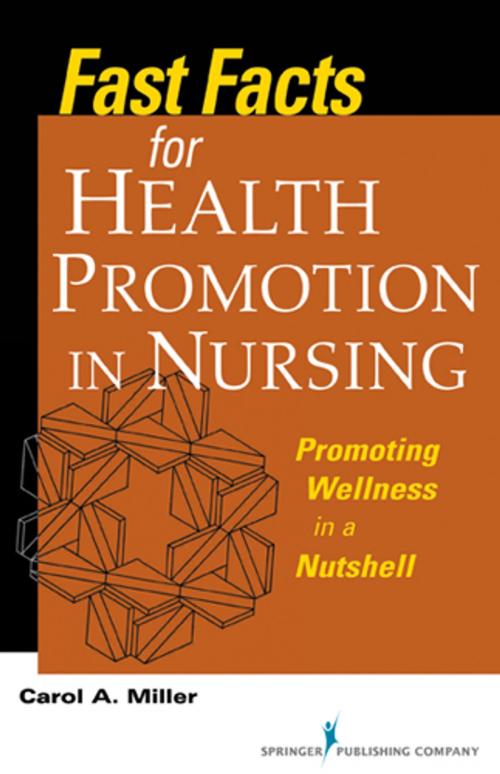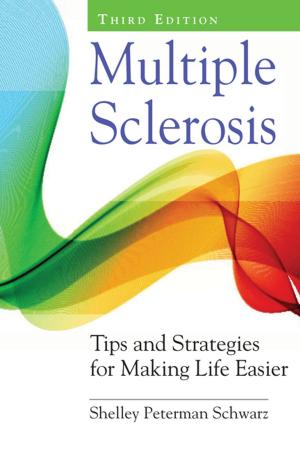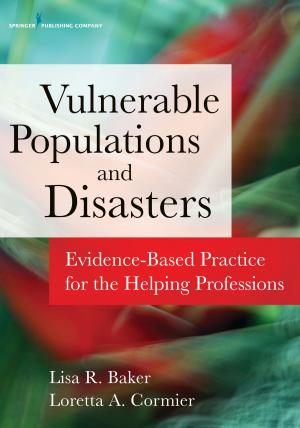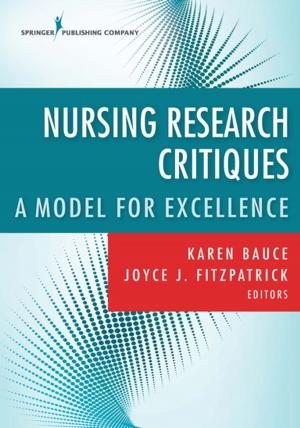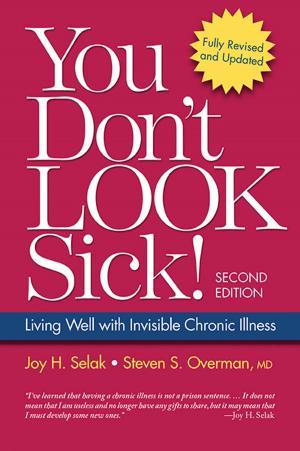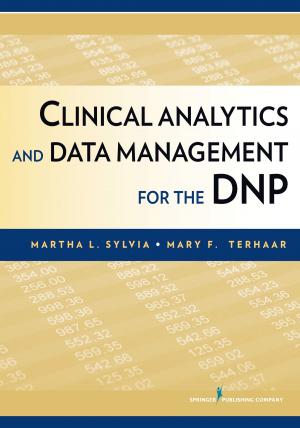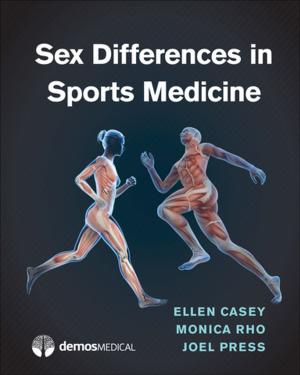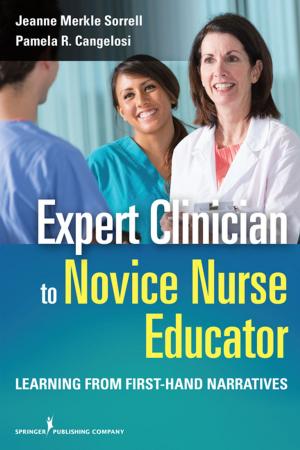Fast Facts for Health Promotion in Nursing
Promoting Wellness in a Nutshell
Nonfiction, Health & Well Being, Medical, Nursing| Author: | Carol A. Miller, MSN, RN-BC | ISBN: | 9780826110541 |
| Publisher: | Springer Publishing Company | Publication: | March 27, 2013 |
| Imprint: | Springer Publishing Company | Language: | English |
| Author: | Carol A. Miller, MSN, RN-BC |
| ISBN: | 9780826110541 |
| Publisher: | Springer Publishing Company |
| Publication: | March 27, 2013 |
| Imprint: | Springer Publishing Company |
| Language: | English |
This addition to the Fast Facts series provides a succinct guide for nurses in adult-health clinical settings and fills the need for an easy-to-use clinical reference that delivers a quick-access reference on ways to incorporate wellness into their work, helping to improve patient outcomes, and throughout their daily lives, helping to reduce personal and professional stress and improve their overall wellness.
There currently is no clinical reference book that nurses can use for health promotion in general and health promotion for wellness in particular. Having such a reference is especially pertinent to nurses who learned about health promotion in academic nursing programs, but did not learn about health promotion in the broader context of promoting wellness.
Since Florence Nightingale, nurses have considered health promotion interventions ñ particularly patient education -- as an essential component of nursing care. Historically, these interventions traditionally focused on physical health concerns, such as nutrition, exercise, and fresh air, and more recently, on immunizations, and screening for disease (e.g., cancer, diabetes, hypertension, and cardiovascular disease). Because health promotion has expanded to include wellness, nurses now address issues related to broader aspects, such as stress reduction, body-mind connectedness, and self-responsibility.
At the same time that wellness has become an important focus of care, health care providers increasingly are emphasizing cost effectiveness and use of advanced technology. As a result of these concurrent trends, nurses experience high levels of job-related stress and have less time to promote patient wellness as an integral part of their care, even though they recognize its importance. In addition, nurses increasingly recognize that job-related pressures negatively affect them personally and they are looking for ways to incorporate wellness in their work and personal experiences.
Fast Facts for Health Promotion for Wellness (FF HP) fills the need for an easy-to-use clinical reference that delivers a quick-access reference on ways to incorporate wellness into their work and throughout their daily lives.
This book:
- Helps nurses understand wellness in the context of health promotion
- Clearly defines wellness as it applies to the practice of nursing
- Describes evidence-based techniques that nurses can readily incorporate into their usual care to promote wellness for their patients
- Provides easy-to-use assessment tools for identifying wellness-related needs of patients
- Provides easy-easy-to-use tools for teaching patients about interventions to promote wellness
- Provides evidence-based information about complementary and alternative practices that nurses often address in patient care situations
- Provides information about reliable resources for patient teaching and additional information about topics
- Discusses ways in which nurses can achieve self wellness
This addition to the Fast Facts series provides a succinct guide for nurses in adult-health clinical settings and fills the need for an easy-to-use clinical reference that delivers a quick-access reference on ways to incorporate wellness into their work, helping to improve patient outcomes, and throughout their daily lives, helping to reduce personal and professional stress and improve their overall wellness.
There currently is no clinical reference book that nurses can use for health promotion in general and health promotion for wellness in particular. Having such a reference is especially pertinent to nurses who learned about health promotion in academic nursing programs, but did not learn about health promotion in the broader context of promoting wellness.
Since Florence Nightingale, nurses have considered health promotion interventions ñ particularly patient education -- as an essential component of nursing care. Historically, these interventions traditionally focused on physical health concerns, such as nutrition, exercise, and fresh air, and more recently, on immunizations, and screening for disease (e.g., cancer, diabetes, hypertension, and cardiovascular disease). Because health promotion has expanded to include wellness, nurses now address issues related to broader aspects, such as stress reduction, body-mind connectedness, and self-responsibility.
At the same time that wellness has become an important focus of care, health care providers increasingly are emphasizing cost effectiveness and use of advanced technology. As a result of these concurrent trends, nurses experience high levels of job-related stress and have less time to promote patient wellness as an integral part of their care, even though they recognize its importance. In addition, nurses increasingly recognize that job-related pressures negatively affect them personally and they are looking for ways to incorporate wellness in their work and personal experiences.
Fast Facts for Health Promotion for Wellness (FF HP) fills the need for an easy-to-use clinical reference that delivers a quick-access reference on ways to incorporate wellness into their work and throughout their daily lives.
This book:
- Helps nurses understand wellness in the context of health promotion
- Clearly defines wellness as it applies to the practice of nursing
- Describes evidence-based techniques that nurses can readily incorporate into their usual care to promote wellness for their patients
- Provides easy-to-use assessment tools for identifying wellness-related needs of patients
- Provides easy-easy-to-use tools for teaching patients about interventions to promote wellness
- Provides evidence-based information about complementary and alternative practices that nurses often address in patient care situations
- Provides information about reliable resources for patient teaching and additional information about topics
- Discusses ways in which nurses can achieve self wellness
